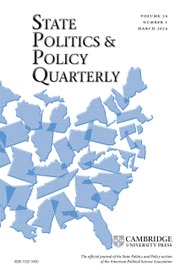Article contents
Deliberative Democracy in Theory and Practice: Connecticut's Medicaid Managed Care Council
Published online by Cambridge University Press: 25 January 2021
Abstract
Despite calls for greater deliberation among citizens on public policy, we have little information about how existing deliberation is structured or how well it works. We examine Connecticut's effort to put public deliberation to work in Medicaid policymaking. Findings from our participant-observation study and in-person interviews with 100 participants in this process suggest some important qualifications to literature on public deliberation. Greater inclusion of diverse social groups from the target population is important, but this should not replace the inclusion of professional advocates since the latter are often more willing than citizen representatives to challenge policy experts on technical issues. Incorporating public deliberation into the process at an early stage is ideal, but deliberation during the later stages of policymaking (including during implementation) can still produce useful results. Finally, the style and purpose of deliberation can shape the range of topics on the agenda, so it is important to understand how the structure of a deliberative forum can affect the style and purpose of deliberation.
The essence of democracy itself is now widely taken to be deliberation, as opposed to voting, interest aggregation, constitutional rights, or even self-government. (Dryzek 2000, 1).
- Type
- Research Article
- Information
- Copyright
- Copyright © 2005 by the Board of Trustees of the University of Illinois
References
- 8
- Cited by


